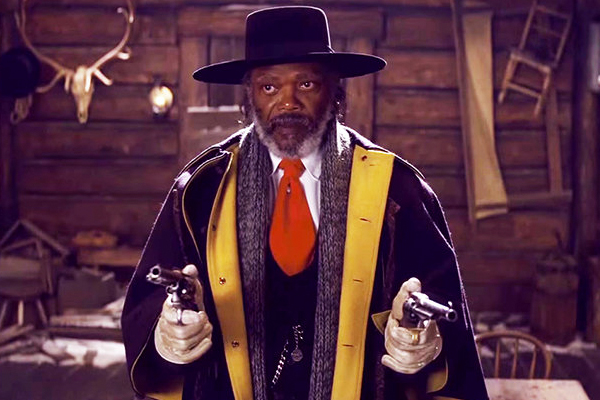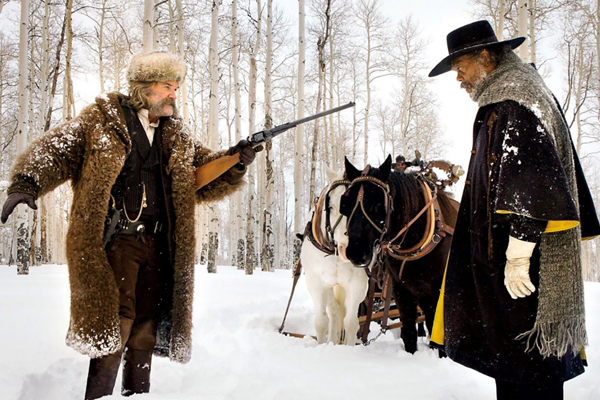The Hateful Eight Review - The Culmination Of Quentin Tarantino's Entire Career
See it, and see it on the widest screen possible.

Rating: ★★★★★
The Hateful Eight is epic. And not in the typical sense that it's a movie with a story so sprawling it's basically the modern equivalent of many a David Lean classic. Quite the opposite in fact - the story itself is rather small, driven by dialogue and taking place mostly in two interiors with a few location elements (it was possible, after all, to craft an exciting show just out of a script read).
No, The Hateful Eight is epic almost because it didn't need to be. This is massive moviemaking of the most audacious kind, with the tight story of eight (technically nine, but one isn't hateful) people snowed in together as hidden plots unfurl, accentuated with a culturally sweeping script (it's set just after the American Civil War) and vast cinematography (this was shot in panoramic wide-screen and Tarantino uses every millimetre of the frame, blocking characters far apart and letting the wintery landscape consistently wow) that make it feel simultaneously massive and intimate (so, content aside, maybe those Lean comparisons aren't as off point as they seem).
The roadshow version takes things even further with an overture and intermission, perceived window dressing that instead totally alters the viewing experience and makes the whole thing feel even bigger. Very few cinemas are showing this format, but seeing this film in the full 70mm is pretty much essential.

This was all inherent to the film before the notorious script leak put the whole project in doubt, so it's very clear this was never meant to be just another Tarantino film (his eighth, because Kill Bill counts as one, apparently). In fact, The Hateful Eight feels like the culmination of the director's entire career.
And that's not some overaggrandising. There's elements of every one of his movies here; the single central location of Reservoir Dogs, the simplistic-made-massive of Pulp Fiction, the freedom with time of Jackie Brown, the violence of Kill Bill, the gleeful unpredictably of Death Proof, the refined dialogue of Inglorious Basterds, the pure love for the era of Django, and the strong element of justice against all forms of persecution (here racial) that runs through the entire filmography. But they're not simple throwbacks or repeated directorial traits. It's like he's taken lessons from every previous experiment and poured all that knowledge in here. Everything works, and for the first time this millennium I don't feel like throttling his editor for not reigning things in - the three hours, seven minutes fly by.
Click next for the second half of the review.